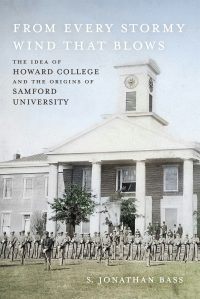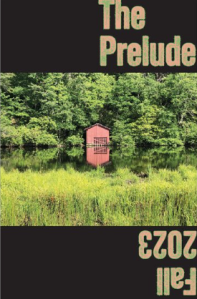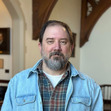The Work (as 2024 winds down)
Being a writer isn’t just a job. It’s more accurate to call it a vocation, since a writer never really turns it off. So it has been an unusual twelve months, not having a book project to work on. Definitely unusual. Faith. Virtue. Wisdom. was released in October 2023 . . . and no new projects have emerged. I wrote about this in a Dirty Boots column in June, but I’ll share it again here: recent months have been a time of contemplation, of stepping back from what I’ve been doing for the last twenty-plus years. Perhaps the catalyst was the pandemic, perhaps it is the fact of turning fifty, but it has been a time to ask, Should I keep doing things in this way? About some aspects of my life, I’ve decided, No, things are going to change.
 What this past year has really been is a year of reading. For so long, I had trouble finding the time and mental energy to read for pleasure. Thankfully, that has changed. Some of it is related to “work,” if we want to call it that. In addition to reading two books to review for the Writers Forum last spring and summer – From Every Stormy Wind that Blows and Glass Cabin – I also read Zachary J. Lechner’s South of the Mind, Alexander P. Lamis’s Southern Politics in the 1990s, and Andrew Gelman’s Red State, Blue State. Rich State, Poor State from the Editor’s Reading List on Nobody’s Home. Just for kicks, I’ve gone through a couple more as well: Belonging by bell hooks, Life is a Miracle by Wendell Berry, The Spirit of Catholicism by Karl Adam, portions of Papermaking by Joseph Heller, a collection of writings by and about the Japanese poet Ryōkan called The Great Fool, the first two sections of A Theory of Moral Sentiments by Adam Smith, the collection We Are the Ones We Have Been Waiting For by Alice Walker, The World According to Garp by John Irving, Conjectures of a Guilty Bystander by Thomas Merton, Loving Our Enemies by Jim Forest, Road to Heaven by Bill Porter/Red Pine, most of the stories in Barry Hannah’s 1978 collection Airships, Harold Bloom’s The Shadow of a Great Rock, and The Places that Scare You by Pema Chödrön. One benefit of having my office in the college’s library is that I pass the magazine shelf daily and have taken to reading Commonweal, The Christian Century, The American Scholar, and The Atlantic with regularity. These days, I just finished reading Martin Shaw’s Smokehole and am picking through John Dear‘s new commentary The Gospel of Peace. Books in the pipeline, which I already have copies of, include Chris Smaje’s A Small Farm Future, Ada Limon’s new edited collection You Are Here: Poetry in the Natural World, Yushi Nomura’s translation Desert Wisdom: Sayings from the Desert Fathers, and Richard Hague’s memoir Earnest Occupations: Teaching, Writing, Gardening, and Other Local Work.
What this past year has really been is a year of reading. For so long, I had trouble finding the time and mental energy to read for pleasure. Thankfully, that has changed. Some of it is related to “work,” if we want to call it that. In addition to reading two books to review for the Writers Forum last spring and summer – From Every Stormy Wind that Blows and Glass Cabin – I also read Zachary J. Lechner’s South of the Mind, Alexander P. Lamis’s Southern Politics in the 1990s, and Andrew Gelman’s Red State, Blue State. Rich State, Poor State from the Editor’s Reading List on Nobody’s Home. Just for kicks, I’ve gone through a couple more as well: Belonging by bell hooks, Life is a Miracle by Wendell Berry, The Spirit of Catholicism by Karl Adam, portions of Papermaking by Joseph Heller, a collection of writings by and about the Japanese poet Ryōkan called The Great Fool, the first two sections of A Theory of Moral Sentiments by Adam Smith, the collection We Are the Ones We Have Been Waiting For by Alice Walker, The World According to Garp by John Irving, Conjectures of a Guilty Bystander by Thomas Merton, Loving Our Enemies by Jim Forest, Road to Heaven by Bill Porter/Red Pine, most of the stories in Barry Hannah’s 1978 collection Airships, Harold Bloom’s The Shadow of a Great Rock, and The Places that Scare You by Pema Chödrön. One benefit of having my office in the college’s library is that I pass the magazine shelf daily and have taken to reading Commonweal, The Christian Century, The American Scholar, and The Atlantic with regularity. These days, I just finished reading Martin Shaw’s Smokehole and am picking through John Dear‘s new commentary The Gospel of Peace. Books in the pipeline, which I already have copies of, include Chris Smaje’s A Small Farm Future, Ada Limon’s new edited collection You Are Here: Poetry in the Natural World, Yushi Nomura’s translation Desert Wisdom: Sayings from the Desert Fathers, and Richard Hague’s memoir Earnest Occupations: Teaching, Writing, Gardening, and Other Local Work.
Even with all that reading, I’ve still managed to do some writing on shorter pieces. I mentioned those two reviews for the Alabama Writers Forum in 2024; I also wrote three for them in 2023. After a year-long hiatus, my Dirty Boots column in November 2023 restarted with a revised subtitle: Irregular Attempts at Critical Thinking and Border Crossing. For the blog here, I’ve written fourteen of those and five more Southern Movies posts, then there have been those three new posts from the Editor’s Reading List on Nobody’s Home and one of my ruminations for the editor’s blog Groundwork. Those, the 50 GenX movies, and two Throwbacks about the twentieth anniversary of The Haiku Year and the fiftieth anniversary of the WAPX shootout add up to a little over 50,000 words over the past year. Of course, I’m also often jotting a haiku or other kind of poem about something or other.
 Among the changes this year, I ended my roughly decade-long moratorium on submitting poems to journals and also dipped my toe back into the world of theater after a thirty-year absence. In the summer, I sent a handful of haiku to a genre-specific journal. Unfortunately, those came back with rejections in a few weeks. Bundles of poems also went out to two other literary journals, and one batch yielded an acceptance! —while the response to the other still up in the air. That forthcoming poetry publication will be my first in eleven years. About the theater stuff, I got the opportunity in February to take a role in an informal reading of a play for Nora’s Salon South. I must not have done too badly in the first one, since they asked me to read a role in another play in May. I enjoyed doing those, since I never had to set aside the script. I’m terrible at memorizing things!
Among the changes this year, I ended my roughly decade-long moratorium on submitting poems to journals and also dipped my toe back into the world of theater after a thirty-year absence. In the summer, I sent a handful of haiku to a genre-specific journal. Unfortunately, those came back with rejections in a few weeks. Bundles of poems also went out to two other literary journals, and one batch yielded an acceptance! —while the response to the other still up in the air. That forthcoming poetry publication will be my first in eleven years. About the theater stuff, I got the opportunity in February to take a role in an informal reading of a play for Nora’s Salon South. I must not have done too badly in the first one, since they asked me to read a role in another play in May. I enjoyed doing those, since I never had to set aside the script. I’m terrible at memorizing things!
One last change: I left the board of the Fitzgerald Museum and stepped away from coordinating the Literary Contest that I created in 2018. I joined the board under a previous museum director, who asked me to revamp what had been a contest with general guidelines. Since it was the centennial of Scott and Zelda meeting in Montgomery, the contest was built around the couple’s life events and publications. After six years, there is a strong foundation to build upon, so I handed over the reins to the current museum director.
Yet, not everything is changing. Nobody’s Home keeps rocking along on its regular path. I published one new essay in November 2023 for the invitation-only reading period, and three more from the Open Submissions Period in August 2024. Founded in 2020, the anthology now has almost sixty essays after four years of steady publication. I already discussed my Groundwork blog, and there are five books remaining in the Editor’s Reading List. Mark Newman’s Getting Right with God, about desegregation and the Southern Baptists, will be next; I’m reading it now. I foresee finishing the last ones . . . probably by the end of 2025.
 And my work at the college has entered its third school year. I’m continuing as the advisor for The Prelude and as the academic writing help guy, while teaching three sections of our first-year experience course and two English courses: a general literature survey and African-American literature. The course load this fall has kept me very busy with prepping, teaching, and grading. Aside from classes, I am particularly proud to be a part of the long tradition with the literary magazine. The Prelude was founded in the fall of 1928 when Huntingdon College offered its first creative writing course, which was taught by Margaret Gillis Figh, co-author of 13 Alabama Ghosts. The magazine’s notable contributors and editors have included novelist Nell Harper Lee, storyteller Kathryn Tucker Windham, poet Andrew Hudgins, and poet Jacqueline Allen Trimble. The Spring 2024 issue – my fourth as the advisor – was available by the time everyone arrived this fall, and we’re taking submissions for the Fall 2024 issue. I also became an NASPA Certified Peer Educator trainer earlier this year. The NASPA training is part of my work with the college’s peer mentoring program and student success efforts.
And my work at the college has entered its third school year. I’m continuing as the advisor for The Prelude and as the academic writing help guy, while teaching three sections of our first-year experience course and two English courses: a general literature survey and African-American literature. The course load this fall has kept me very busy with prepping, teaching, and grading. Aside from classes, I am particularly proud to be a part of the long tradition with the literary magazine. The Prelude was founded in the fall of 1928 when Huntingdon College offered its first creative writing course, which was taught by Margaret Gillis Figh, co-author of 13 Alabama Ghosts. The magazine’s notable contributors and editors have included novelist Nell Harper Lee, storyteller Kathryn Tucker Windham, poet Andrew Hudgins, and poet Jacqueline Allen Trimble. The Spring 2024 issue – my fourth as the advisor – was available by the time everyone arrived this fall, and we’re taking submissions for the Fall 2024 issue. I also became an NASPA Certified Peer Educator trainer earlier this year. The NASPA training is part of my work with the college’s peer mentoring program and student success efforts.
After writing a similar post a year ago, it seemed like time to look around once again and make an assessment. It has felt this year like I had been slacking, but maybe not. Considering that, in the last twelve months, I am still vigorously writing, teaching, publishing, and reading . . . I guess what I’m doing is maintaining. And that’s OK right now. This period of contemplation is coming to an end, it seems, and a path forward is emerging.



